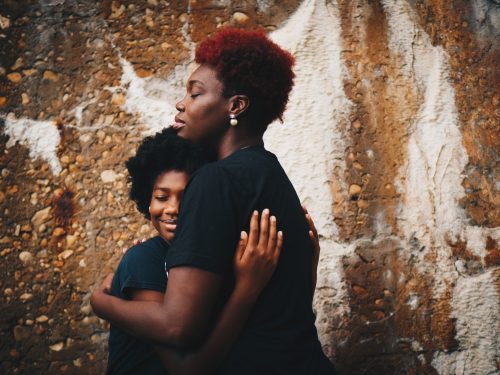On one hand, mental health is the overall wellness of how you think, regulate your feelings and how you behave. On the other hand, Mental illness or mental health disorder is defined as patterns or changes (in ones thinking, feeling or behaviour) that disrupt a person’s ability to function. They are conditions that affect a person’s thinking, feeling, behaviour or mood.
In children, mental illnesses are defined as delays or disruptions in developing age-appropriate thinking, behaviours, social skills or regulation of emotions. These conditions deeply impact day-to-day living and may also affect the ability of a child to relate to others.
What Age Does Mental Health Illness Show Up?
Half of all mental health disorders show first signs before a person turns 14 years old. Three quarters begin before the age of 24. The first episodes of schizophrenia, bipolar disorder and major depressive disorder tend to appear in the late teens and early 20s. [Tweet “Results of a survey carried out by WHO show clearly that the first onset of mental disorders usually occurs in childhood or adolescence. Children can develop the same mental health conditions as adults, but their symptoms may be different.”]
Symptoms often start in early childhood, although some disorders may develop during the teenage years. Mental illness can impact social and cognitive functions and decrease one’s energy levels, which can prevent the adoption of healthy behaviour. Young people may take on eating and sleeping habits that aren’t healthy or even smoke and abuse substances, as a response to their symptoms, thereby contributing to worse health outcomes.
Early mental health support can help a child before mental health challenges interfere with other aspects of development. The most common mental illnesses in adolescents are anxiety, mood, attention, behavioural disorders and depression. Without early diagnosis and treatment, children with mental disorders can have problems at home, in school, and in forming friendships.
[Tweet “Early mental health support can help a child before mental health challenges interfere with other aspects of development. The most common mental illnesses in adolescents are anxiety, mood, attention, behavioural disorders and depression.”]
Why does mental illness occur in young ones?
Even though they do not fully understand, researchers think that certain people have a higher biological risk of developing mental illnesses. Risk factors may include family history, prenatal illnesses, obstetrical incidents or head injuries in early childhood. How genes, the environment and brain development interact to trigger the disorder in young people isn’t certain. However, people tend not to develop symptoms until they reach their teen years. Hormones might also play a role in the onset of mental disorders.
Furthermore, young people living in poverty with chronic physical conditions are at risk of developing mental health problems. They may also face barriers to accessing mental health care which contributes to more severe mental health problems.
Symptoms of Mental Health illness
The symptoms of a disorder may differ depending on a child’s age, and children may not be able to explain how they feel or why they are behaving a certain way.
Mental and physical illnesses share many symptoms such as food cravings and decreased energy levels. These can increase food consumption, decrease physical activity and even contribute to weight gain. Some symptoms of mental disorder are:
- Hurting oneself or talking about hurting oneself
- Talking about death or suicide
- Outbursts or extreme irritability
- Out-of-control behaviour that can be harmful
- Drastic changes in mood, behaviour or personality
- Changes in eating habits
- Loss of weight
- Difficulty sleeping etc.
Is there a Treatment for Mental Health Illness?
Often, a combination of medication and non-medication interventions produces good results in helping the child with a mental illness. According to MayoClinic, some ways you can treat mental illness in children are:
Psychotherapy: Psychotherapy, also known as talk therapy or behaviour therapy, is a way to address mental health concerns by talking with a psychologist or other mental health professional. With young children, psychotherapy may include playtime or games, as well as talk about what happens while playing. During psychotherapy, children and adolescents learn how to talk about thoughts and feelings, how to respond to them, and how to learn new behaviours and coping skills.
Medication: Your child’s doctor or mental health professional may recommend a medication — such as a stimulant, antidepressant, anti-anxiety medication, or mood stabilizer — as part of the treatment plan.
Other treatments
Making screening for mental illness and substance abuse a routine part of general healthcare, like the annual physical exam, can help to reduce the severity of these conditions when they begin.
Many young people are afraid that there is no treatment for whatever mental illness they may have, so they try to hide the symptoms and pretend nothing is wrong. Unfortunately, the media distributes a lot of misinformation about mental illness.
Behavioural techniques that health care providers often use to decrease symptoms in children with behavioural disorders like ADHD among others involve the parents, teacher, and other adult caretakers understanding the circumstances surrounding both positive and negative behaviours and how each kind of behaviour is encouraged and discouraged.
Some mental health issues, however, are chronic and ongoing, but even these can be managed with proper treatment and intervention. During preventive care visits, children should be screened for any mental health issues in a closed and private setting.
Mental Health Illness and Parenting
Mental illness in children can be hard for parents to identify. As a result, many children who could benefit from treatment don’t get the help they need. As parents, you should understand how to recognize warning signs of mental illness in your children and how you can help them.
Only a qualified healthcare provider can truly diagnose a mental health illness, but you may be able to identify some warning signs and involve a professional.
- Learn about mental health illness.
- If you’re concerned about your child’s mental health, consult your child’s doctor. Describe the behaviours that concern you. Talk to your child’s teacher, close friends, relatives or other caregivers to see if they’ve noticed changes in your child’s behaviour. Share this information with your child’s doctor.
- Consider family counselling that treats all members as partners in the treatment plan.
- Ask your child’s mental health professional for advice on how to respond to your child and handle difficult behaviour.
- Enrol in parent training programs, particularly those designed for parents of children with a mental illness.
- Explore stress management techniques to help you respond calmly.
With the right support, most individuals with mental health challenges can and will find treatments that are successful.
Some Resources for Mental Health
- The National Institute of Mental Health (NIMH)
- https://mchb.hrsa.gov/maternal-child-health-initiatives/mental-behavioral-health
- World Health Organization (WHO): Understanding Depression
SEE ALSO:






